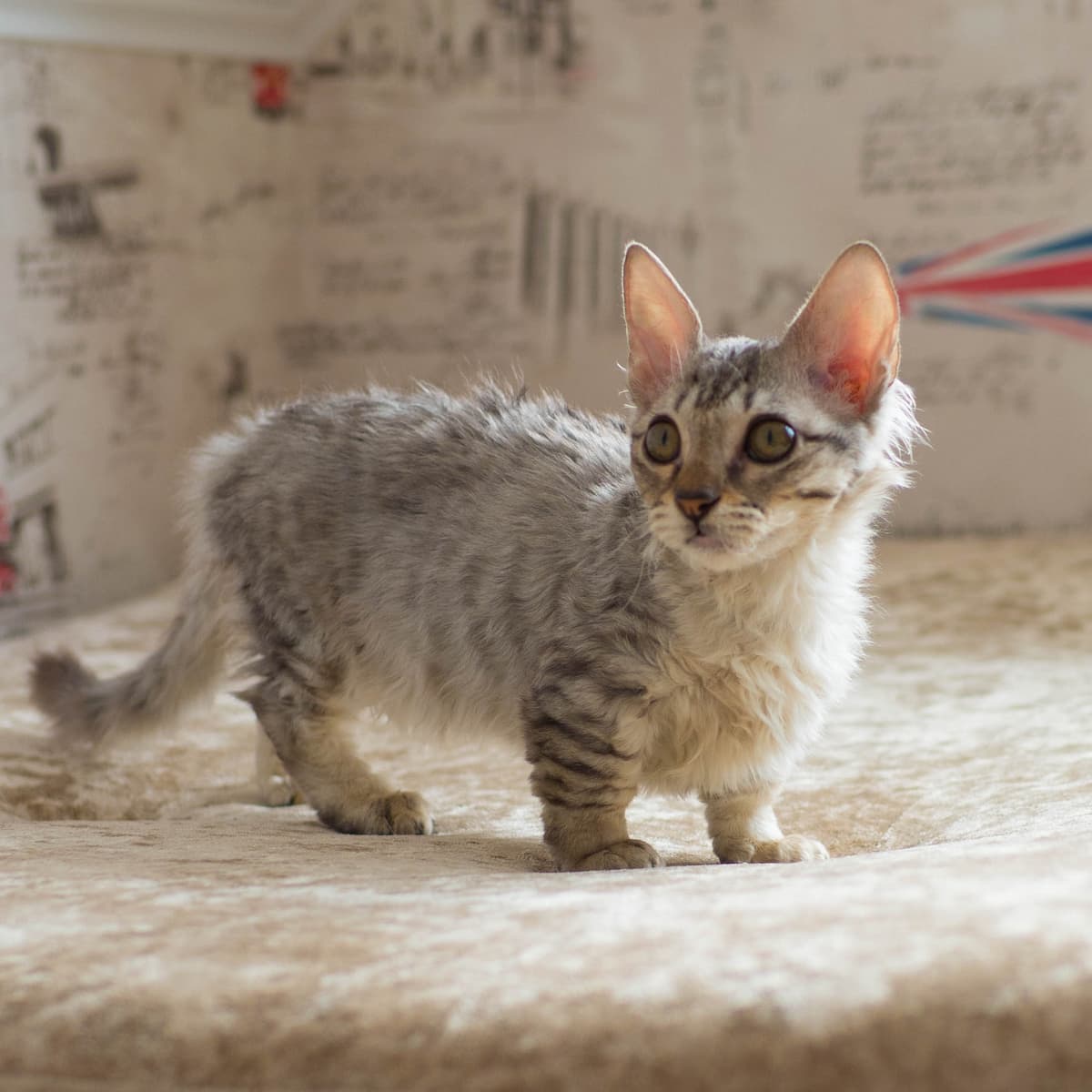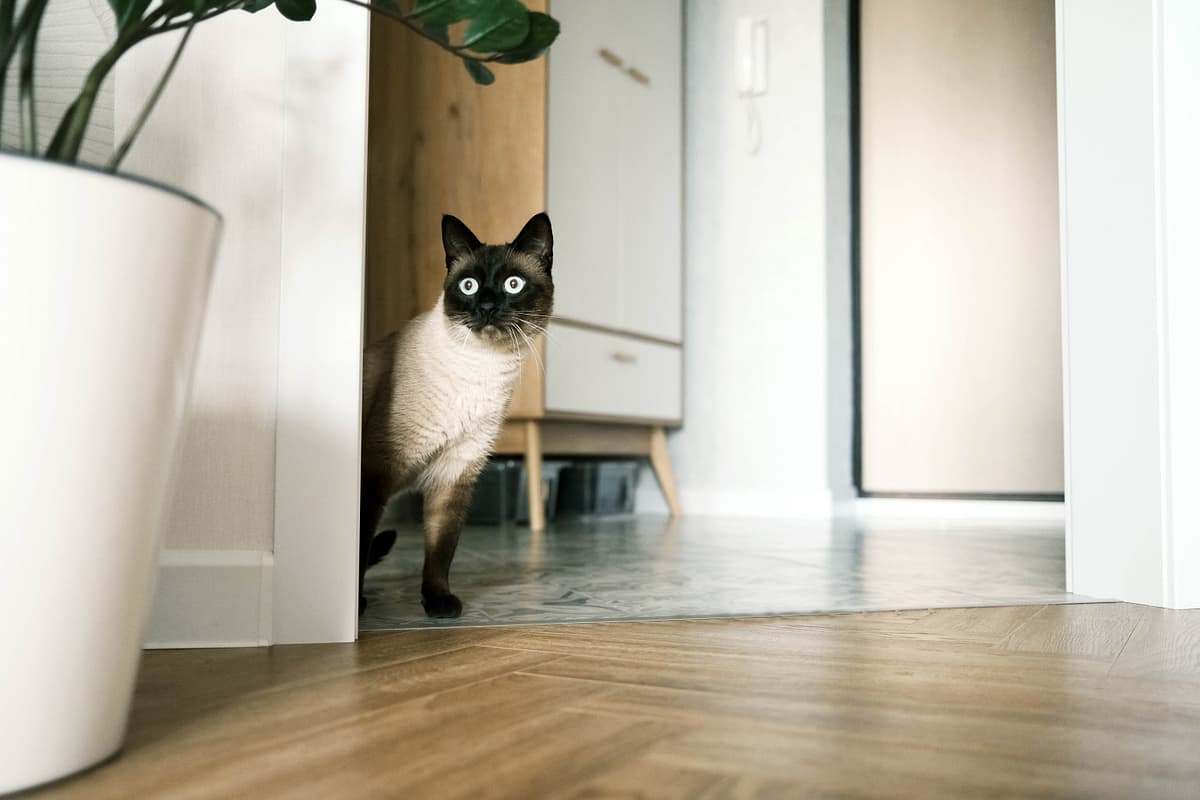Munchkin vs Siamese
Discover the differences between Munchkin and Siamese to make the best choice for your situation.
Try different breeds

Munchkin
Short legs and playful spirit make this breed endlessly entertaining. Affectionate and outgoing, Munchkins thrive as charming companions in any loving home.

Siamese
Striking blue eyes and a sleek, short coat set this affectionate breed apart. Social, vocal, and playful, Siamese cats thrive on companionship and interaction.
Quick comparison
Small
2–4 kg
Shorthaired, plush
12–15 years
2–3.5 kg
Moderately active
Medium
3.5–5.5 kg
Shorthaired, fine-textured
12–16 years
2.5–4.5 kg
High energy
Personality & behavior
Compare the personality traits and behavioral characteristics of both breeds.
Munchkin
Enjoys human company and seeks social interaction
Learns routines and basic tricks fairly quickly
Active indoors, enjoys regular bursts of activity
Frequently engages in games and interactive play
Adjusts well to new environments and changes
Siamese
Enjoys people and bonds closely with owners
Learns quickly and solves puzzles with ease
Highly active and thrives on daily activity
Loves games and interactive play sessions
Adjusts well to new environments and changes
Care needs
Exercise, grooming, and daily care requirements
Munchkin
Lordosis, pectus excavatum
Siamese
Progressive retinal atrophy, respiratory issues
Suitability
How well each breed fits different living situations and families
Munchkin
Great choice
Easygoing temperament and adaptability make them manageable for first-time cat owners
Highly suitable
Small size and moderate activity level fit well in apartment settings
Moderately suitable
Enjoy play but may tire quickly due to short legs and lower stamina
Very friendly
Generally gentle and tolerant with respectful young children
Good fit
Typically sociable with other pets if introduced properly
Not ideal
Dislike being alone for extended periods and may become lonely or stressed
Siamese
Good option
Affectionate and social, Siamese cats are generally easy for beginners to understand
Excellent fit
Their playful nature suits smaller spaces as long as they receive enough attention
Highly suitable
They enjoy interactive play and thrive in active, engaging environments
Usually good
Siamese cats are social but may be sensitive to rough handling by very young children
Works well
They often get along with other pets if introduced properly and given attention
Not recommended
Siamese cats become lonely and stressed if left alone for extended periods
Breed strengths
What each breed excels at and their best qualities
Munchkin
- Playful and energetic with interactive toys
- Social and enjoys human companionship
- Adaptable to apartment or indoor living
- Generally friendly with other pets
- Low grooming requirements due to short coat
Siamese
- Affectionate and bonds closely with owners
- Highly intelligent and quick to learn
- Social and enjoys interactive play
- Communicates needs with distinct vocalizations
- Sleek, low-shedding coat requires minimal grooming
Challenges & considerations
Potential challenges and considerations for each breed
Munchkin
- Prone to spinal or joint issues
- Limited jumping ability due to short legs
- May struggle with high surfaces
- Can be prone to obesity if inactive
- Some concerns about breeding ethics
Siamese
- Prone to separation anxiety if left alone
- Can be overly vocal and demanding
- Sensitive to changes in environment or routine
- Needs frequent mental and physical stimulation
- Susceptible to dental and respiratory health issues
Ready to choose your perfect breed?
Learn more about each breed or compare other breeds to find the perfect match for your lifestyle.
Discover more helpful tools
Make use of our other free tools to get the most out of your pet experience
